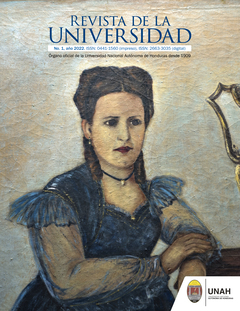Cultural management as an academic function strategy at the National Autonomous University from Honduras
DOI:
https://doi.org/10.5377/ru.v1i1.15416Keywords:
Cultural Management,, UNAH,, Academic Function,, StrategicAbstract
University extension and cultural diffusion as one of the three substantive functions of the university, together with teaching and research science, has come a long way since beginning of the 20th century in which its first conceptualizations in Latin America. The first deep questioning, made to the university took place in Argentina with the Córdoba Movement and its Liminary Manifesto (1918), in which the first reforms that consider the extension university as "the strengthening of the social function of the university; projection to university culture village; and the concern for national problems (ANUIES, 1995, p. 27). The previous conception allowed the Latin American universities will organize extension departments to channel their social projection to the community including the diffusion of arts and culture. In terms academics, one of the main factors identified that affect the heterogeneity of existing university extension models in the Latin American universities, are the different institutional conceptions and approaches / administrative procedures around the terms of "university extension", which in practice is focus on action social, community and/or business projection.
260
Downloads
Published
How to Cite
Issue
Section
License
Copyright (c) 2022 Revista de la Universidad

This work is licensed under a Creative Commons Attribution-NonCommercial-ShareAlike 4.0 International License.




